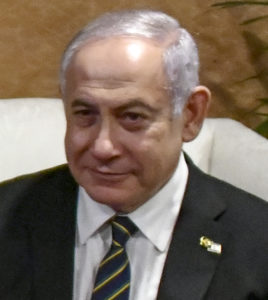Frederick Krantz
Israzine.org, Dec. 31, 2019

Benjamin Netanyahu, Israel’s long-time Prime Minister, has decisively won a Likud party primary against his only internal party competitor, Gideon Sa’ar, by a land-slide 73% victory (80% in Jerusalem) of the 116,000 votes polled. But while the vote certainly strengthens Netanyahu’s hand within Likud (which he thanked for its “trust, support and love”), it does not necessarily translate into increased strength in the upcoming March 2 national election, the third this year.
Sa’ar, a 53-year-old former Cabinet member, had argued he was better suited to win the election against the Benny Gantz-led Blue and White coalition, which he argued is unified only by its distaste for “Bibi”. As leader, he claimed he could hold onto Likud’s nationalist and ultra-Orthodox coalition base, and appeal to Blue and White drop-outs. Conceding defeat after the vote, he said the result “was clear” and congratulated the Prime Minister “on his victory’”, pledging to support him and Likud on March 2nd.
On the other hand, Netanyahu’s win may strengthen him, in two respects. First, were he to be re-elected Prime Minister, he could legally hold office without being brought to trial on his three indictments for fraud, breach of trust and bribery, all of which he denies. Secondly, his massive win, and his remarkable political record, domestically, regionally, and internationally, including his close ties with American President Donald Trump, might move the needle among the electorate sufficiently in his direction to enable him, this time around, to build the minimally-61 seat ruling coalition which eluded him in this year’s past two contests.
Netanyahu has led the nationalist Likud since 2005, and has become the Jewish state’s longest-serving Prime Minister. In recent years he has overseen Israel’s remarkable economic and technological development, negotiated Israel’s warming relations with its Sunni Arab neighbors, and pulled off the remarkable feat of maintaining close and direct relations with both Donald Trump (recognition of Jerusalem as Israel’s capitol, and legitimation of Israeli control of the Golan Heights and Judea and Samaria communities) and Russia’s Vladimir Putin (acting as a brake on Hezbollah and Iranian activities in Syria).
Whether he will prevail the third time around, in March, is moot—but given his record, the current primary vote, Israel’s evident need for an ongoing government, and the Middle East’s repeated ability to create unforeseen crises, the odds may well favor him once again, despite his debilities.

